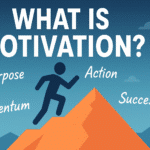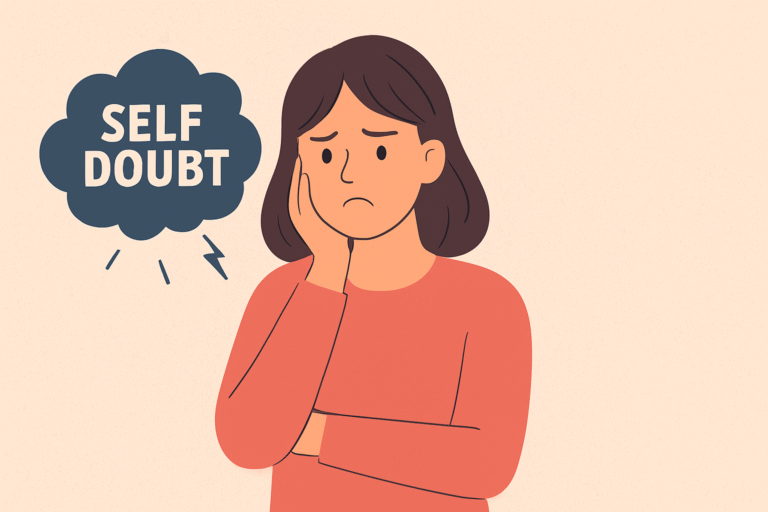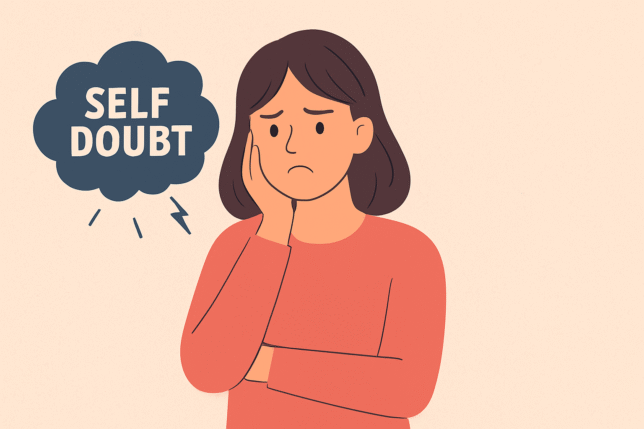Imagine you are taking a stroll by the riverbank. It is a fine day and everything seems just nice. Suddenly, you see a crocodile emerging from the river and slowly moving towards you. What would you do?
At this moment, the fear emotion kicks in and you will go into the fight-or-flight mode. For most people, they will run away from the place as soon as possible to escape the crocodile.
They don’t care if the rocks by the river are beautiful or the birds are singing on the tree. They are so focused on their fears and they just want to get away from the danger.
This is how negative emotions like fear will do to us.
Whenever you feel fear, your brain automatically shuts off and ignores all every other thing because they become irrelevant when the danger is just right in front of you.
Negative Emotions Closes Off Your Brain
Have you ever been in a fight with someone? At first, you try to argue your point to let the other person understands what’s on your mind.
But if things don’t turn out good, the argument can turn into a fight where you become so angry that you can’t think of anything else. All you want to do is to win the conversation.
You shout, you use harsh words, and you are so focused on the conversation that everything around you becomes irrelevant. Even if your lover is standing next to you and is trying to stop you, but you will just ignore her and continue the fight.
The takeaway is that when you are experiencing negative emotions like fear, stress, and anger, your brain closes off from every other thing and focuses on the negative emotions.
Just like when you encounter the crocodile. The negative emotions stop you and prevent you from seeing all the other possibilities around you. It is a survival instinct, a normal response. However, this response is only useful when it comes to facing real dangers such as surviving in the jungle or crossing the highway full of cars.
But in other areas like your career, business, and finances, this response may not be helpful. It stops you from venturing out of your comfort zone and it freezes you from taking action.
Now, what if you feel positive? How will positive emotions and positive thinking impact our lives?
How Positive Emotions Affect Our Thinking and Impact Our Lives
According to Barbara L. Fredrickson, a positive psychology researcher from the University of North Carolina, she published her studies on the impact of positive emotions on our lives.
In her experiment, she came up with 5 groups of participants, each group were showed different film clips.
The first 2 groups watched clips that created positive emotions. The third group was the control group where they were shown neutral clips with neither positive nor negative emotion. And the last 2 groups were shown clips that created negative emotions.
After that, all the participants were asked to imagine themselves in a situation where they would undergo the same feelings and then write down what they would do. They were given a paper with 20 blank lines started with the words, “I would like to…”
Here’s the result of the study. Fredrickson discovered that the first 2 groups wrote down a significantly higher number of actions they would take as compared to the neutral group, which was group 3. As for the last 2 groups where the participants watched clips that sparked negative emotions, they wrote down the fewest responses on the paper.
What this means is that when we are experiencing positive emotions such as happiness, joy, love, satisfaction, and contentment, we see more possibilities in life.
On the other hand, when we experience negative emotions, our brains shut off and only focus on the negative feelings, make us blind to the opportunities that are already around us.
The Broaden-And-Build Theory of Positive Emotions
Fredrickson then developed a theory where she called the “broaden-and-build theory”, which states that positive emotions broaden our senses of possibilities and open our minds, and in turn, allow us to build new and better skills and resources that are valuable in our lives.
When you are feeling positive, you are open to learning. And when you learn, you acquire new skills or improve them. As a result, this will greatly impact your life even after you don’t feel positive anymore, but the skills you acquired will stay with you.
Imagine a child happily playing with his friends outside the house. He is experiencing all sorts of positive emotions like joy, fulfillment, and excitement.
And when the child is positive, he develops his physical skills through moving athletically, he improves his social skills by communicating with his friends and acquires creative skills through exploring and having the most fun around his friends.
The best part is that these skills will stay with the child for as long as possible even after he becomes an adult. This is how positive emotions can greatly impact your life.
Now, imagine what will happen if the child experiences negative emotions? You know the answer.
How to Think Positive and Increase Positive Emotions in Life
Oftentimes, positive thinking may seem like something vague and something easier said than done.
The concept of positive thinking has been around since many years ago. The idea was first made popular by Norman Vincent Peale, the famous author who wrote the best-selling book, “The Power of Positive Thinking“.
Back then, there weren’t much studies and research done on the subject, but today, researcher like Barbara Fredrickson has successfully shown us the positive impact that positive emotions can have on our lives.
I bet everyone knows that positive thinking is helpful and many times, when asked about the keys to becoming successful, one that often tops the list is none other than positive thinking.
So, how can we think more positively and experience positive emotions more regularly? Here are some of the suggestions.
1. Journaling
I believe that journaling or writing is something that most people do from time to time, especially when we are at school. Journaling is not rocket science and it is not something new. In fact, it is an ancient tradition.
Many successful people throughout history kept their journals. Even Richard Branson, the billionaire and founder of Virgin Group business empire brings a notebook with him everywhere he goes. Oscar Wilde, the 19th-century playwright once said:
“I never travel without my diary. One should always have something sensational to read on the train.”
I once heard the success guru, Robin Sharma talks about journaling. He says that the society has trained us to repress and suppress our feelings. Whenever we feel sad or angry, we try to keep our feelings and bury them deep inside.
Instead, what Robin Sharma suggests us do is to keep a journal and write down everything. It is like we are “letting go” of our feelings into the book. We put our feelings into the paper.
Plenty of studies have been conducted on the health and mental benefits of journaling. If you want to understand more, you can read the articles here and here.
So how do you journal? Here are some suggestions:
- Experts say that journaling will be most effective if you do it daily for about 20 minutes.
- Forget about spelling and punctuation errors. This is not a test or exam.
- Get away from distraction and just write.
- Adopt the “free-flow” style and write whatever that comes to your mind.
- You can choose a theme or a topic, such as peace of mind, anger, change, joy, etc.
- Just write whatever that feels right to you.
There was a study done to a group of students. Half of the group was asked to write the positive experience they went through each day and the other half was a control group.
After three months, the study found that students who wrote about their positive experiences have better mood levels and increased overall wellbeing.
Thus, start journaling today. Make it a habit to write each day.
2. Meditation
Another great method to increase your positive thinking and emotions is to meditate. A lot of studies have been done on meditation and scientists have proved that meditation can increase your positive emotions, mindfulness, and improve your immune system.
Oprah Winfrey says she sits in stillness for 20 minutes, twice a day. She is an advocate of Transcendental Meditation. She once told the press:
“I walked away feeling fuller than when I’d come in. Full of hope, a sense of contentment, and deep joy. Knowing for sure that even in the daily craziness that bombards us from every direction, there is — still — the constancy of stillness. Only from that space can you create your best work and your best life.”
Arianna Huffington, the founder of Huffington Post Media Group says that early morning yoga and meditation as her two “joy triggers”. This is what she writes on her blog:
“Stress-reduction and mindfulness don’t just make us happier and healthier, they’re a proven competitive advantage for any business that wants one.”
There are tons of highly successful people who practice meditation daily and they all find that this practice has greatly improved their mental health. They become more positive and happy.
Successful people like Tony Robbins, Jeff Weiner, Ray Dalio, Katy Perry, Steve Jobs, Jerry Seinfeld, Ellen DeGeneres, and many more, practice meditation. Perhaps, you should too.
Check out this list of successful people who meditate.
3. Read and Learn
Reading and learning, in my opinion, is one of the best ways to keep a positive mental attitude. I love reading and I read a lot.
When you are feeling down, you feel pain, or sad, turn to books. Read something inspiring. You will discover that there are many more people who have gone through situations that were worse than you, but still, they manage to go through it.
The key to get inspired is to read or watch something that connects to your life. For example, if you are in business and your business is in a mess right now, you should read about stories of successful entrepreneurs.
When you can relate what you read or watch to your life, you can be inspired. And if you can be inspired, you can feel good and be more positive.
Here is a list of all the great books that I have read and that I recommend you read. Check it out.
4. Play and Have Fun
When was the last time you have fun and feel good about life? As adults, we have been conditioned to think that having fun is the privilege of kids. As a result, we don’t really have fun anymore.
We tend to think that as adults, we should act like an adult and take each matter more seriously. We schedule meetings, work, and other responsibilities, but we don’t schedule fun time, right?
Here’s a great quote from Richard Branson:
“Some 80% of your life is spent working. You want to have fun at home, why shouldn’t you have fun at work?”
And he also said, “A business has to be involving, it has to be fun, and it has to exercise your creative instinct.”
If you want to learn about play and having fun, you should learn from Charlie Hoehn, the best-selling author of the book, “Play It Away: A Workaholic’s Cure for Anxiety“.
You can also read his blog post on how he cures his anxiety by giving himself the permission to have fun, which adults don’t do anymore. Charlie puts it well, he writes in his blog:
“Kids don’t have a chat over coffee; they pretend and make jokes and explore the outdoors.
Kids don’t go to work; they play their favorite games.
Kids don’t network; they bond with other fun kids while playing.
There is no ego. There is no guilt. There is no past to regret, and no future to worry about.”
So enjoy more, and worry less.
5. Connect with Positive Minds
When Jim Rohn said, “You are the average of the five people you spend the most time with,” he is absolutely right.
If you surround yourself with negative people who talk about other people and who complain all the time, guess what, you will become one of them too. After all, they are your friends and this is the topic that you guys talk about, most of the time.
Therefore, take a great look at whom you mix with most of the time. Identify the negative friends or relatives that you want to spend less time on. And choose to spend more time with positive people.
Life is just too short to spend it with miserable people. Negative people will try to bring you down and influence you, so find ways to get rid of them.
When you spend time with happy people, you increase your happiness. You lower your stress and worry less. Not only that, positive minds make you more motivated and have better optimism towards work and life.
6. Experience the Now
Another great way to have more positive emotions is to experience the now and live in the present.
Just let go of all your anxiety and worry. Stop worrying about the future. Stop thinking if you can’t pay the bill or if things are going to turn out alright.
And stop living in your past too. Whatever has happened, you can’t change it. So there is no way to worry about the past or the future. Just live in this moment. And enjoy this moment.
If you watch the first movie of Kung Fu Panda, there was a scene where Master Oogway told Po not to worry about the future or the past. And then the master said:
“Yesterday is history, tomorrow is a mystery, and today is a gift… that’s why they call it the present”
By the way, you should check out all the great and inspiring quotes from Kung Fu Panda. I have spent a lot of time crafting that post, so check it.
I know that the practice of living in the present moment is easier said than done. What can you do or is there any particular steps you can take to practice living in the now?
Yes, according to PsychologyToday, there are 6 steps you can take to live in the moment. You can read the article here.
Conclusion
I believe that you have learned a lot about positive thinking from this post.
Remember, when you are experiencing negative thinking, your brain will shut off and focuses only on the negative emotions such as fear and anger. Remember the crocodile? It is a fight-or-flight instinct built-in our brains.
Therefore, consciously practice positive thinking. Try to experience more positive emotions like joy, contentment, happiness, gratefulness, etc, each day.
The more positive you become, the more possibilities are opened to you. This is why positive people tend to be more successful.
Love what you read? Share what you think about this article in the comment section below.
Shawn is a passionate coach who empowers individuals to achieve their goals and reach new heights of success. With his experience in the personal development industry, Shawn has guided countless people towards fulfilling their potential and achieving outstanding results in life. He has experience in the personal development industry for more than 7 years and has helped countless success seekers to achieve outstanding success in life. Learn more about him on Everydaypower.com or Goalcast.com






















7 Responses